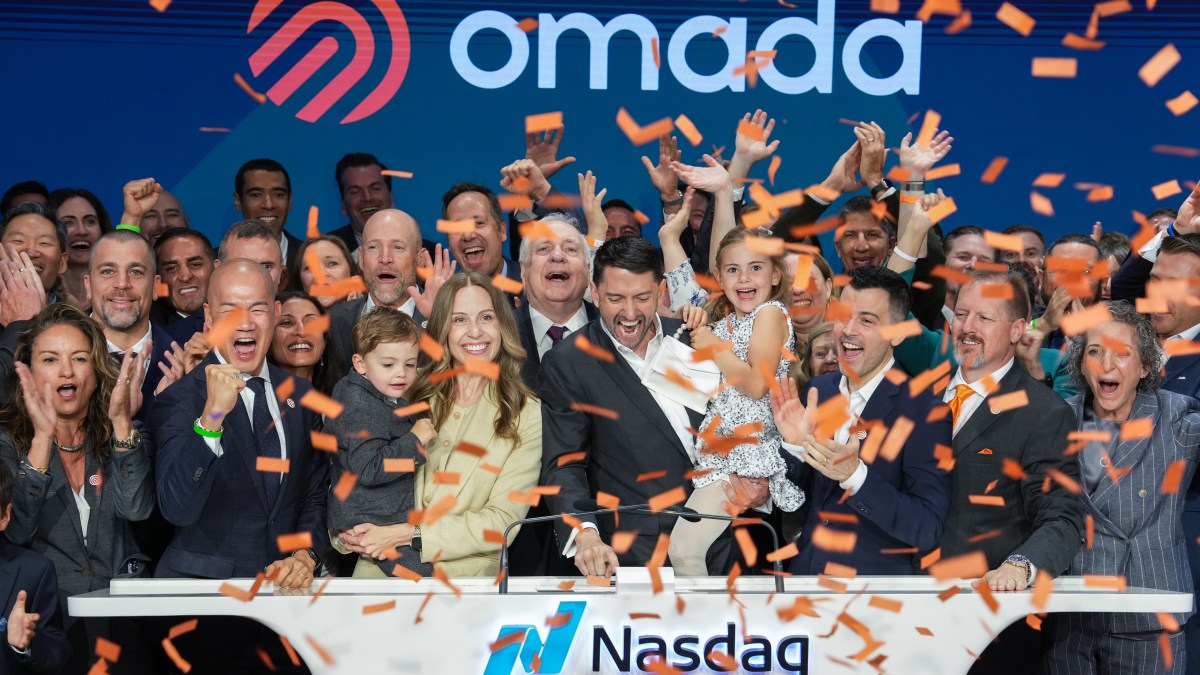

The IPO market is starting to feel healthier.
Omada Health, a 14-year-old company providing virtual care for chronic conditions like diabetes and hypertension between office visits, closed its first trading day on Friday at $23 a share, a 21% jump from the IPO price of $19.
The IPO valued the company just above $1 billion (excluding employee options), a figure that’s nearly identical to Omada’s last private valuation of $1 billion set in its previous VC round. The debut is one of the first among recent IPOs that was not a so-called down-round. Many of the latest public listings, including Hinge, ServiceTitan, and Reddit, priced below their private market highs, though have faired well as public companies.
For founder and CEO Sean Duffy, the successful public offering validates his decision to start a company that he believed the market desperately needed. In 2011, he dropped out of Harvard Medical School after realizing that chronic illness patients required more continuous support than the existing healthcare system delivered.
Before the offering, he owned 4.1% of the company, according to Omada’s offering document. Other significant shareholders included Revelation Partners (10.9%), US Venture Partners (9.9%), Andreessen Horowitz (9.6%), and FMR (9.3%).
Duffy told TechCrunch that over his 14-year journey as a founder, he had many harrowing moments.
“I didn’t think our series A was going to come together because we were working on this commercial deal that didn’t materialize, and that spooked one investor,” he said.
“As a young business, something tries to kill you every month,” he continued. “And then as the business grows, it turns into like every quarter or six months, year, two years.”
One of the recent challenges for many digital health businesses is navigating the “collapse” of the market post-COVID boom. Omada navigated the turbulent times by seeking new, rising markets. It recently expanded its offerings to include diet management support for GLP-1 patients.
Keep reading the article on Tech Crunch

Circle, one of the world’s largest issuers of USDC, a stablecoin pegged to the U.S. dollar, ended its first trading day as a public company at $83.23 per share, 168% above its IPO price of $31 set the previous day.
The IPO pop demonstrates public market investors’ interest in cryptocurrencies and stablecoins in particular amid the Trump administration’s supportive stance on crypto assets.
The significant surge in Circle’s first-day trading could prompt institutional investors to set higher IPO prices for upcoming listings. Imminent IPOs include Omada Health, which is pricing on Thursday, and Klarna, a fintech that’s set to list next week.
The company’s IPO price, at which shares it sold shares, set its initial market value at $6.1 billion, a figure that fell short of Circle’s last private market valuation of $7.7 billion, set it April 2021 when the company raised a $400 million Series F in April 2021, according to PitchBook data.
But the big pop cleaned that up and then some. Circle’s market capitalization (excluding employee options) stood at $16.7 billion by the close of trading. And the company raised about $1.1 billion in the offering.
Circle joins a growing list of companies whose IPOs are priced below their private market highs, including recent ‘down-round’ offerings from healthtech Hinge, contractor platform ServiceTitan, and social network Reddit. So that’s not likely to dissuade startups looking for signs that now is the right time to go public.
Circle’s successful IPO comes three years after Circle’s previous attempt at going public. The stablecoin issuer had plans to combine with a SPAC in 2022 at a $9 billion valuation.
The company’s largest outside shareholders are General Catalyst, which held approximately 8.9% of all stock before the offering, and IDG Capital, which owned 8.8% of all shares. Other significant venture investors include Accel, Breyer Capital and Oak Investment Partners, according to the S1.
Keep reading the article on Tech Crunch